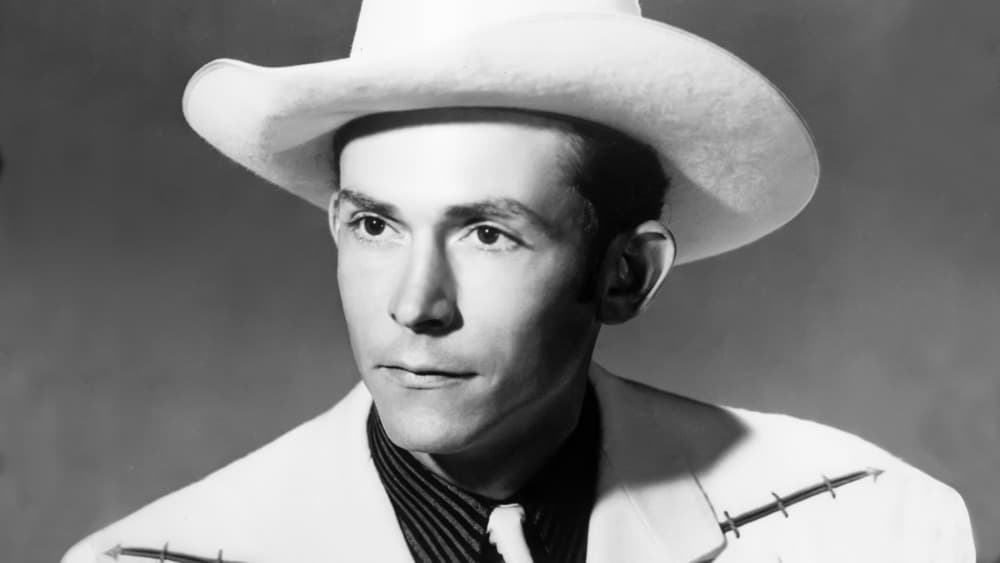
A solemn meditation on innocence and faith in the face of loss.
“The Funeral” is a deeply emotional recitation by Hank Williams (credited under his alter ego Luke the Drifter) that gently yet hauntingly reflects on the death of a Black child, drawing on compassion, faith, and a sense of spiritual consolation.
When it comes to chart performance, “The Funeral” wasn’t a commercial hit in a conventional sense—it was released in 1950 as a Luke the Drifter single on MGM Records with “Beyond the Sunset” as its B-side. Because “Luke the Drifter” was a pseudonym Hank used for his recitations and moralistic, spoken-word pieces, these tracks weren’t primarily aimed at hit–making but rather at conveying deeper messages.
Unlike his more famous honky-tonk singles, “The Funeral” does not seem to have entered the mainstream country charts; rather, it belongs to that more introspective corner of Williams’s catalog—songs meant for listening, reflection, and sometimes, quiet discomfort.
Behind the song lies a rather complex and sensitive story. “The Funeral” is based on a poem by Will Carleton, which Williams adapted into a recitation. The poem describes a poor Black family mourning their child, and a preacher delivering a message of hope: that the child’s earthly life was a loan, and now he has gone to a “big house up above.” In Williams’s recording session at Castle Studio in Nashville on January 9, 1950, the emotional weight of the piece was evident: according to biographer Colin Escott, both Williams and steel guitarist Don Helms wept after finishing.
Williams produced this under his Luke the Drifter identity, a persona he used for spoken-word, sermon-like or confessional works. The producer for the session was Fred Rose, and the backing musicians included Helms (steel guitar), Hillous Butrum (bass), and possibly Owen Bradley on organ.
As for the song’s meaning, “The Funeral” is a portrait of both sorrow and reassurance. Williams’s narration places the listener in a small, humble church in Savannah, Georgia. He describes seeing a grieving Black couple and their child in a coffin, painting a delicate but honest picture of their pain. The preacher speaks with gentle authority: he encourages the mourners not to weep as if the child is permanently lost but to see this as a loan from God, and that their tears are “interest on the loan.”
The imagery is tender but not naive. The preacher’s “Ethiopian face” is described in terms that modern listeners may find problematic: Williams’s choice of language, even for his time, reflects racial stereotypes. Scholars note that while Williams delivered the piece with sincerity, the words themselves can feel “uncomfortably patronizing” from a contemporary standpoint. Yet, his performance tries to transcend mere caricature: Bob McNett, who was present at the recording, recalled that Williams “lost himself” in the performance.
At its heart, this is a song about faith, mortality, and the belief in a better, eternal home. The preacher’s voice in the song invites mourners to trust in God’s wisdom even when earthly life feels unfair or painful. The idea that the child is now in a “big plantation” in heaven — surrounded by angels and loved ones — is a metaphorical consolation for both parents and listeners.
But the song also reflects larger social and historical complexities: it evokes the racial reality of its era, with Williams drawing on stereotypes that are now rightly questioned. Critics such as those from The AV Club have called the song “queasily fascinating,” suggesting that while modern listeners must reckon with its datedness, they can also feel the honest empathy Williams brought to the performance.
For an older audience — someone who remembers the slow-turning radio dial, the days when songs were not just heard but felt and lived — “The Funeral” holds a special weight. It is not a toe-tapper or a love ballad, but a quiet, earnest prayer: the voice of a musician who was more than a country star, more than a singer, but a storyteller with a wounded, compassionate heart.
In that sense, this piece stands as a reminder that Williams’s legacy was not just in his heartbreak songs or his honky-tonk anthems, but in his willingness to speak of suffering, loss, and redemption — and to do so with a sincere, trembling voice. Hank Williams, through Luke the Drifter, offers us his empathy, his grief, and his faith, and in listening, we are invited to reflect on the fragility of life and the hope of something beyond.